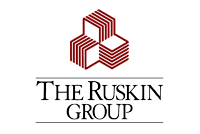Ryan Ruskin
Making a Business Case for Sustainable Packaging
How can brands justify funding sustainably beneficial packaging that may cost more? …
COVID-19 and Plastic Packaging Procurement: One Year Later
My kingdom for a plastic bottle! How the pandemic disrupted the perception and sourcing of plastic packaging, and how the supply chain has adapted. …
Mars Invests $390M to Build Dry Pet Food Plant in Ohio
The Royal Canin North America production facility will be located next to the firm’s Pet Health Nutrition Center in Lewisburg, OH. …
Confectionery Packaging in the Time of Pandemic: A Snapshot
While consumers' appetite for chocolate, candy, gum, and mints remains steady, packaging preferences shifted. …
Skepticism Mounts over Utility of Biodegradable Plastics
Yes, these materials will degrade over time. But how long will it take? And under what environmental conditions? …
Compostable Bioplastic Food Wrap, Resealable Bags Launch in US
Compostic's certified home-compostable cling wrap and resealable bags made with biopolymers are 100% zero-waste including the packaging. …
6 Major Food & Bev Players Enter Cannabis Market
See how these established food and beverage manufacturers are exploring cannabis-infused products and other opportunities. …
Medtech Unfiltered Celebrates Sterile Packaging Day
An industry expert joins Medtech Unfiltered to talk about the inaugural celebration of Sterile Packaging Day. …
Jabil Healthcare and E3D to Collaborate on Drug Delivery Device Platform and More Supplier News
Here’s what was new in the world of medical device suppliers during the week of March 7. …
Global Flexible Packaging Challenge Draws Big-Name Support
The Incubation Network’s second annual Global Innovation Challenge, The Future of Flexibles, is supported by Dow, Danone, Procter & Gamble, Unilever, and others. …










